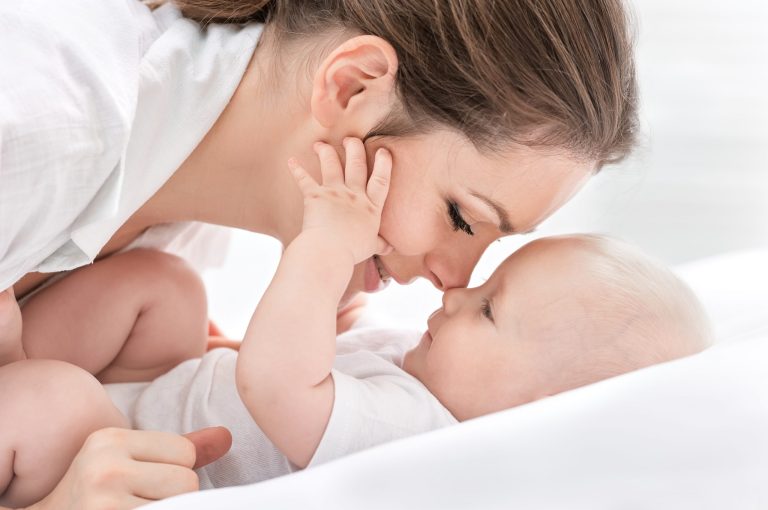
When Will My Baby TALK
- Created:
21. 7. 2020 - Updated:
4. 10. 2023
Do you want to know when do babies start to talk?
Not only talking but cooing, babbling, and other baby milestones. Your baby will make sounds since his 2nd month of life. Listen carefully and pay attention to every attempt your baby makes to communicate.
Engage in a conversation with your baby to help him develop his speaking skills faster, as babies learn from imitation.
You will hear some words at 9 months, but the first actual word will come later.
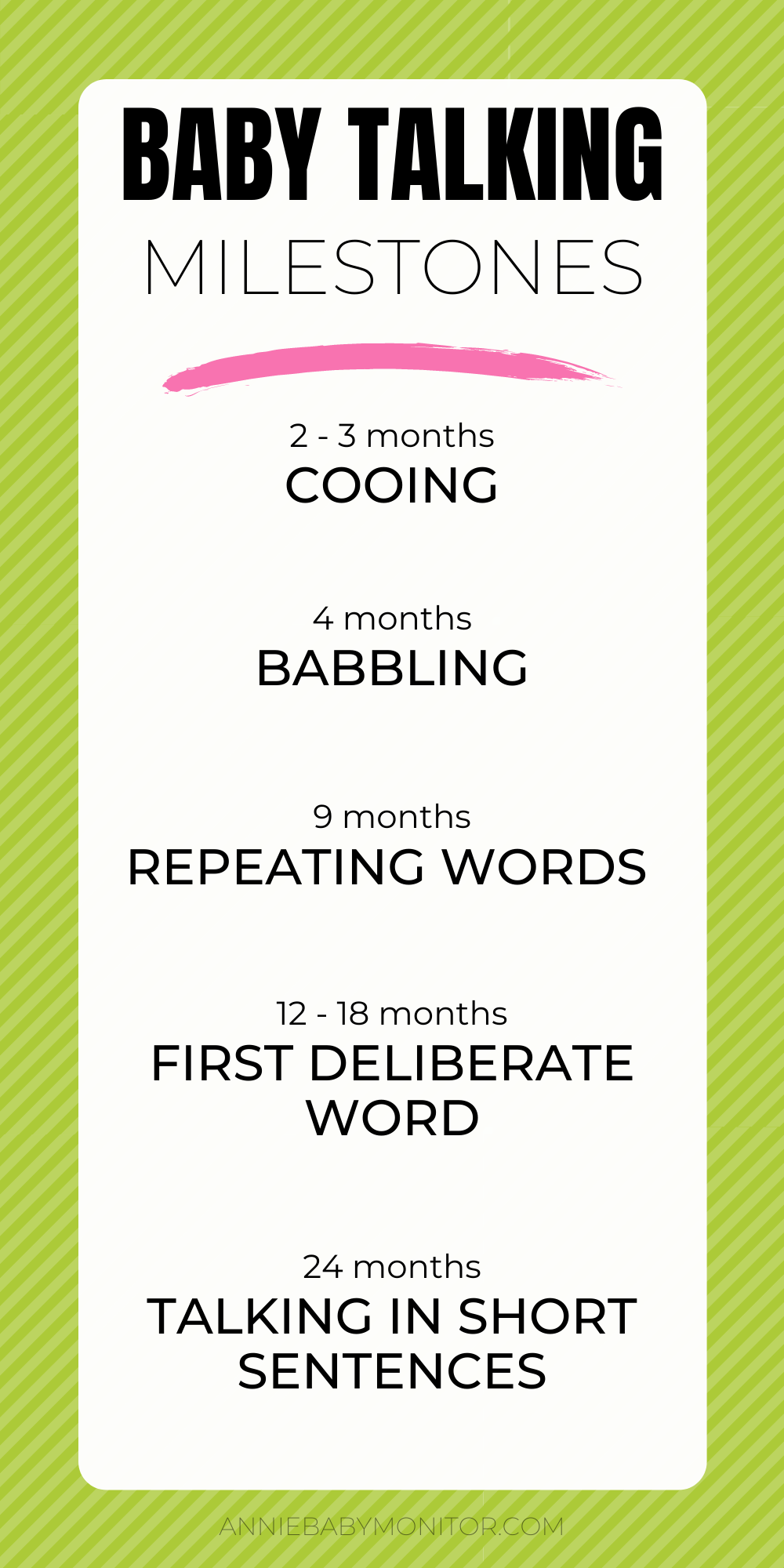
When do babies start to talk
Your baby learns to talk during his first 2 years of life.
But you can hear him cooing and gooing at about 2 to 3 months. Babbling starts around 4 months of age.
The first syllables you will hear will likely be composed of “p,” “b,” and “m” sounds, which are produced by simply putting the lips together, says Diane Paul, Ph.D., director of clinical issues in speech-language pathology at the American Speech-Language-Hearing Association.
You may think you hear his first word at 9 months, but that is likely just him repeating words after you. Babies learn new languages by mimicking others, their lip movement, gestures, and tone of voice. You can help them develop these skills earlier by engaging in verbal communication with them.
The real first word usually comes between 12 and 18 months. So don’t worry if your baby isn’t calling you “mama” at their 1st birthday celebration.
Baby talking timeline
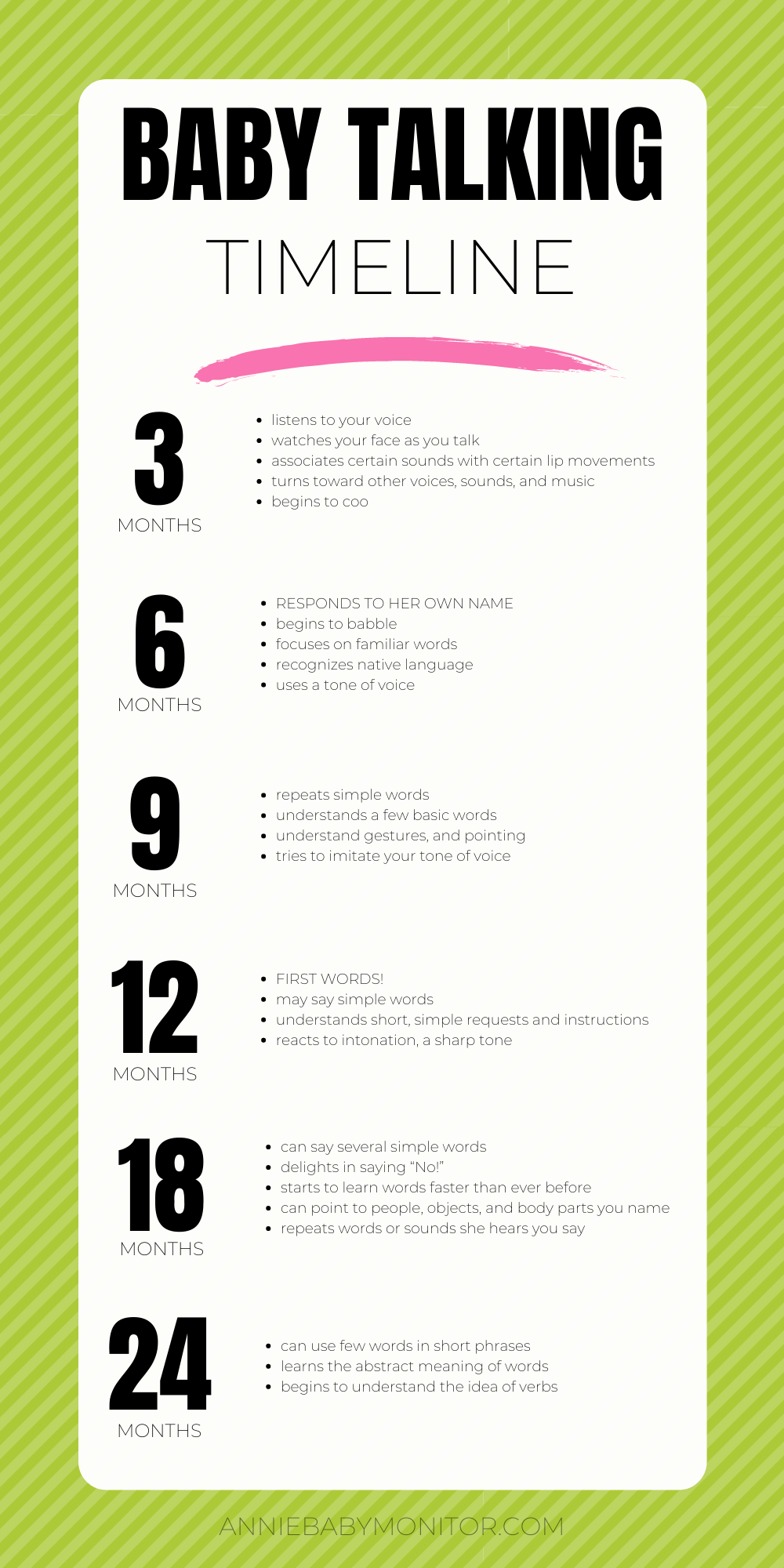
3 months
- listens to your voice
- watches your face as you talk
- associates certain sounds with certain lip movements
- turns toward other voices, sounds, and music
- begins to coo
6 months
- RESPONDS TO HER OWN NAME
- begins to babble
- focuses on familiar words
- recognizes native language
- uses a tone of voice
9 months
- repeats simple words (but doesn’t understand the meaning yet)
- understands a few basic words like “no” and “bye-bye”
- understands gestures, and pointing
- tries to imitate your tone of voice
12 months
- FIRST WORDS!
- may say simple words like “hi”, “mama”, “dada”, “kitty”, or “cookie”
- understands short, simple requests and instructions
- reacts to intonation, a sharp tone
18 months
- can say several simple words
- delights in saying “No!”
- starts to learn words faster than ever before
- can point to people, objects, and body parts you name
- repeats words or sounds she hears you say
24 months
- can use few words in short phrases
- learns the abstract meaning of words
- begins to understand the idea of verbs
Help your baby talk
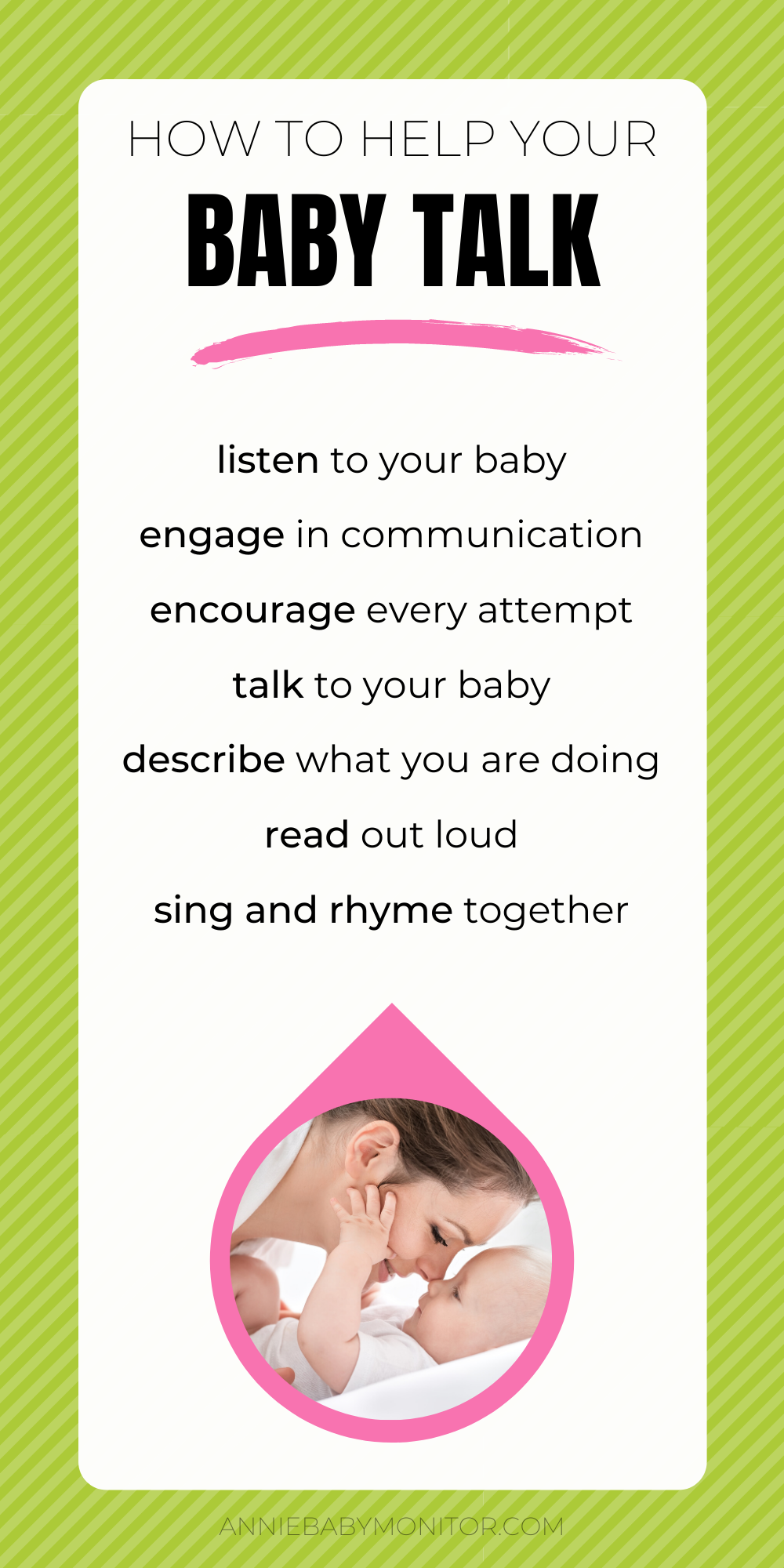
Watch and listen
Your baby may attempt to communicate non-verbally in her early days. Same when your baby starts to coo and babble.
Encourage this behavior by smiling and trying to understand your baby.
Give her enough time to express herself as if she was talking already.
Imitate and engage
Babies learn by imitating people around them. So talk to your baby as much as possible.
Use short, simple words to help your baby with the correct pronunciation. Speak slowly and clearly.
Talk out loud
Explain what you are doing. That way your baby will associate a certain activity with the words. Such as: “Mommy is doing dishes now,” or “Let’s put your pajamas on.”
When your child makes “baby noises” talk about what your baby wants. For example, if your baby expresses she wants more food, say: “You want more pasta, yes? It is very good.”
Be patient
Always try to understand what your baby is telling you and encourage even the smallest attempts at communication.
Pause after you say something so that she has time to process your words and give her a chance to “reply”.
Play and read together
Playtime is a great way to develop imagination and verbal skills. Engage with your child in a two-way game of talking and listening.
Sing songs and rhyme rhymes. Your baby will learn valuable language skills from the simple rhythms and silly repetitions of nursery rhymes and songs.
Final Tip: Encouraging Early Communication with Annie Baby Monitor
Has your little one started talking? Teaching them how to reach you whenever needed is a good idea. This will help them learn to be more independent.
With Annie Baby Monitor, you can do just that!
Annie Baby Monitor detects sound, so you will hear it immediately when your baby wakes up and demands your attention.
Annie Baby Monitor captures these moments, giving your little one exposure to language-rich experiences that can help them develop their language skills faster.
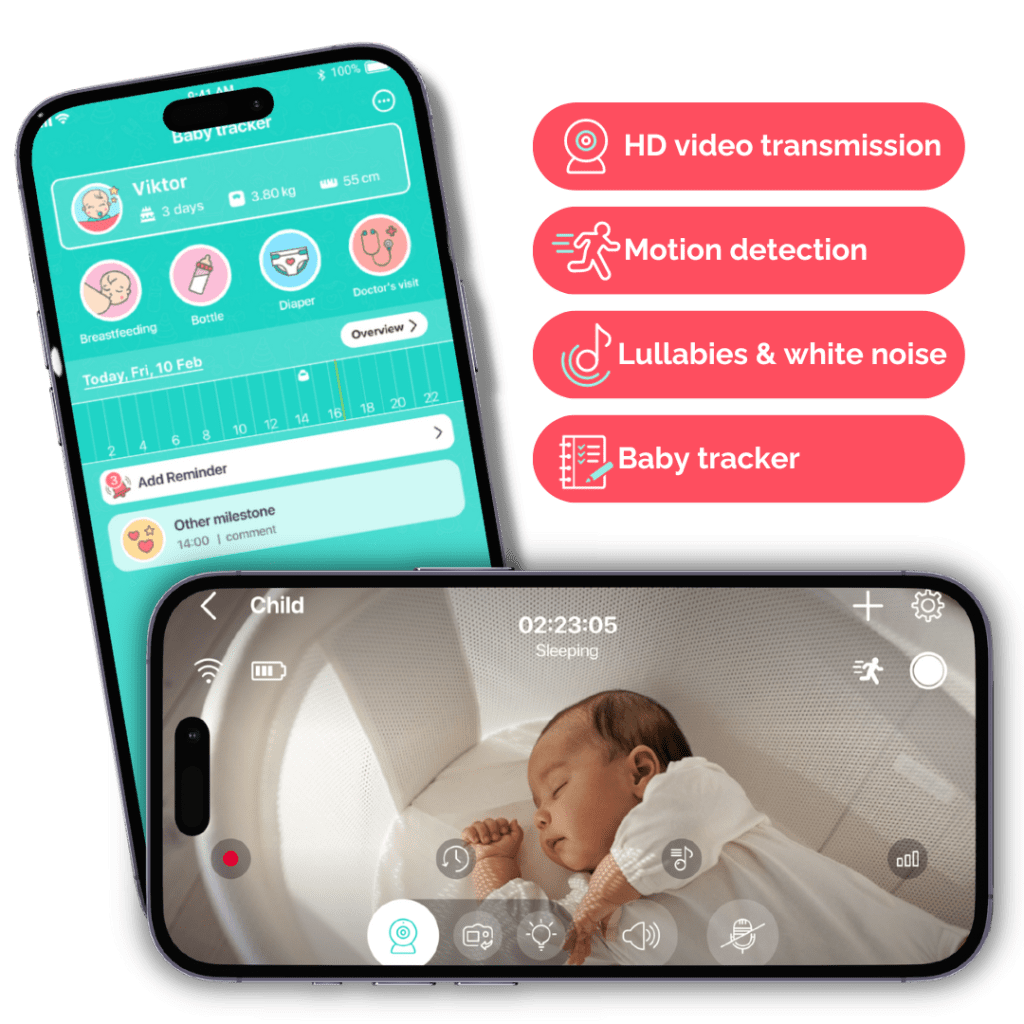
Don’t forget to track your baby’s first words in the Annie Baby Tracker!
Don’t miss the chance to create lasting memories. Get your Annie Baby Monitor.





